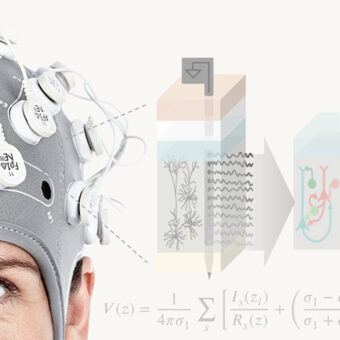“Will you stay in our lovers’ story
Kooks from Hunky Dory – David Bowie – 1971
If you stay you won’t be sorry
‘Cause we believe in you”
David Bowie wrote Kooks when he received news of the arrival of his son Duncan Jones (aka Zowie Bowie). I am going to be a father too! But in my case, not being as good a composer as David Bowie, I thought I’d write a post instead.
During these last months I have learned a lot about babies and I would like to share some of my findings with you. There is plenty of information available about mother and fatherhood; however, a big part of it is quite contradictory and many parts are under debate. In this post I will focus on the neuroscience perspective.
The baby’s brain starts to form 16 days after conception, probably before you even know you are pregnant! In fact, it is one of the very first systems to develop. By the end of the first trimester, the baby will begin to develop the sense of touch. Around the same time, the baby will start to detect sounds; so speaking to your baby will indeed make her/him get used to your voice. In fact, studies have shown that the sound of the mother’s voice will be better heard, as her voice reverberates through her bones and body, amplifying it.
But for the fathers-to-be, do not worry, your voice is also recognized by your baby! This study shows that newborns react differently to words and sounds that were repeated daily throughout the third trimester compared to those that they never heard during pregnancy.
As we know, the brain is extremely plastic, even more so at early ages. A newborn baby has 100 billion neurons, roughly as many as stars in the Milky Way. About half of these neurons will be pruned by adulthood due to the “fire together wire together” principle. Only the neurons and synapses that are often used will remain and all other ones will disappear. We can assume that all babies are born synesthetic and in early ages will learn how to differentiate senses. When this pruning process does not go as usual, some adults will maintain this synesthesia … they will listen to colors or taste sounds…weird, huh?
Another interesting fact is that all babies are born early and that the gestation process finishes at month 21. That is 9 months intrauterine gestation + 12 months of extrauterine gestation. This is because of how big the baby’s head is compared to how small the pelvis is. That causes the baby’s brain to be quite underdeveloped compared to those of other primates and mammals, which is why human babies are helpless and rely on caregivers for so long.
Taking into account how sensible the baby’s brain is and its huge capacity for learning, the correct stimuli during pregnancy and during her/his first years of life are crucial. As this is very well known, it’s no wonder that the birth process itself is very important! There are thousands of theories and lots of controversy regarding this topic. What I have learned, and what I do believe, is that the more natural the birth is, the better it is for the baby and mother. There has been a tendency in the last years to medicalize the birth process, and thank god, this seems to be changing nowadays. If birth is induced by artificial means, such as using oxytocin, then anesthesia will likely be necessary. External help will also likely be required for the baby to exit the womb, sometimes even a C-section. All these artificial stimuli are the very first stimuli received by the baby and, many studies show, will strongly affect her/him. Just to mention a few:
– C-Sections May Boost Child’s Risk of Obesity
– Woman are 3 times more likely to die during Caesarean delivery than a vaginal birth

To finish I would like to share with you this amazing technique to study the babies brains in a non-invasive way: the Fetal MEG. With state-of-the-art signal processing techniques, scientist are able to measure the babies spontaneous brain electrical activity and even record event related potentials.
There are few of these devices in the world, but I was lucky enough to visit one in the lab of Niels Birbaumer in the University of Tübingen.
Well, that’s it for today. I hope you have learned a bit about babies’ brains, and that you will understand them better and treat them with more patience and empathy. They have to learn almost everything from scratch! I will surely do in the next forthcoming months 🙂 Thanks for reading and until next time!





